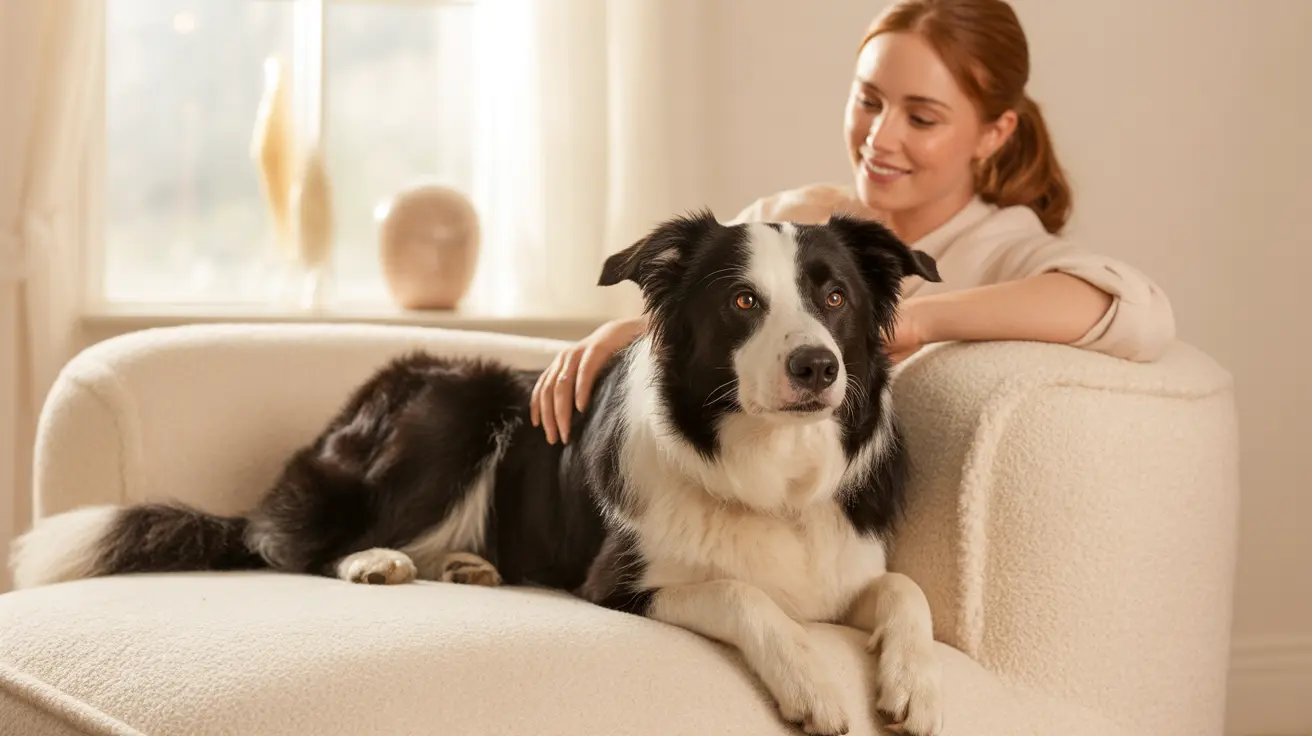If you've ever wondered why your furry friend insists on sleeping pressed up against you, you're not alone. This common canine behavior has deep roots in both their evolutionary history and their emotional connection with their human family members. Let's explore the fascinating reasons behind why dogs choose to sleep so close to their owners and what this behavior tells us about our relationship with them.
The Pack Mentality: A Natural Instinct
Dogs are naturally pack animals, and this ancestral instinct continues to influence their behavior today. When your dog sleeps against you, they're following an ancient pattern of behavior that helped keep their wild ancestors safe and connected.
This pack mentality manifests in several ways:
- Maintaining physical closeness to protect the group
- Sharing warmth and comfort
- Strengthening social bonds through physical contact
Security and Emotional Comfort
When your dog chooses to sleep against you, they're often seeking both physical and emotional security. Your presence provides them with a sense of safety that allows them to fully relax and rest peacefully.
Dogs find comfort in:
- Your familiar scent
- Your steady breathing and heartbeat
- The warmth of your body
- The reassurance of your proximity
The Protective Partnership
Many dogs position themselves against their owners not just for their own security, but also to protect their human family members. This protective instinct is particularly evident in certain sleeping positions:
- Sleeping with their back against you to face potential threats
- Positioning themselves between you and the door
- Maintaining light sleep to stay alert to unusual sounds or movements
Temperature Regulation and Physical Comfort
Beyond emotional reasons, dogs may sleep against you for practical comfort. Your body heat provides them with warmth, which is especially appealing during colder months or for smaller breeds who get chilly more easily.
Signs of Potential Issues
While sleeping against you is typically normal behavior, sometimes it can indicate underlying concerns:
- Excessive clinginess might suggest separation anxiety
- Aggressive behavior when moved could indicate resource guarding
- Sudden changes in sleeping habits might warrant veterinary attention
Frequently Asked Questions
Why does my dog sleep against me, and is it a normal behavior?
Yes, it's completely normal behavior. Dogs sleep against their owners to maintain pack bonds, seek security, share warmth, and show trust and affection. This behavior is deeply rooted in their evolutionary history as pack animals.
How can I encourage my dog to sleep in their own bed if they prefer sleeping next to me?
Gradually train your dog by placing their bed next to yours, using positive reinforcement with treats and praise when they use it. Slowly move the bed to your preferred location over time. Maintain consistent boundaries and ensure their bed is comfortable and inviting.
What does it mean if my dog sleeps on me and faces away or shows their back?
When a dog sleeps with their back against you, it's often a sign of trust and protection. They're positioning themselves to watch for potential threats while knowing you've got their back – literally. This is a positive behavior that shows they consider you part of their pack.
Can sleeping with my dog provide any benefits for me or my dog?
Yes, sleeping near your dog can benefit both parties. For humans, it can reduce anxiety, provide comfort, and increase feelings of security. For dogs, it strengthens the bond with their owner, provides emotional security, and satisfies their pack instincts.
How do I know if my dog's closeness at night is due to separation anxiety or another issue?
Watch for signs like excessive clinginess during the day, distress when you're preparing to leave, destructive behavior when alone, or extreme vocalization. If these symptoms accompany your dog's nighttime closeness, consult with a veterinarian or animal behaviorist for proper assessment and treatment options.






